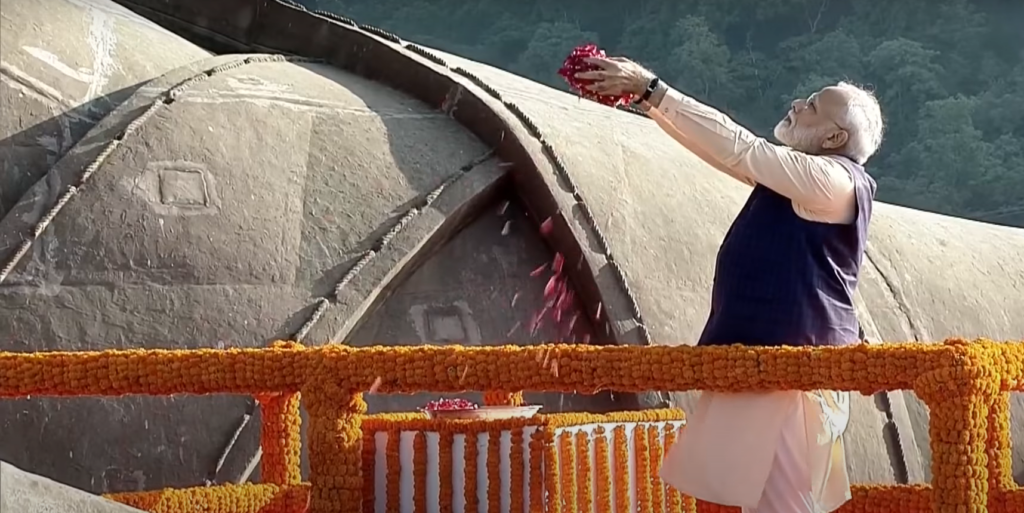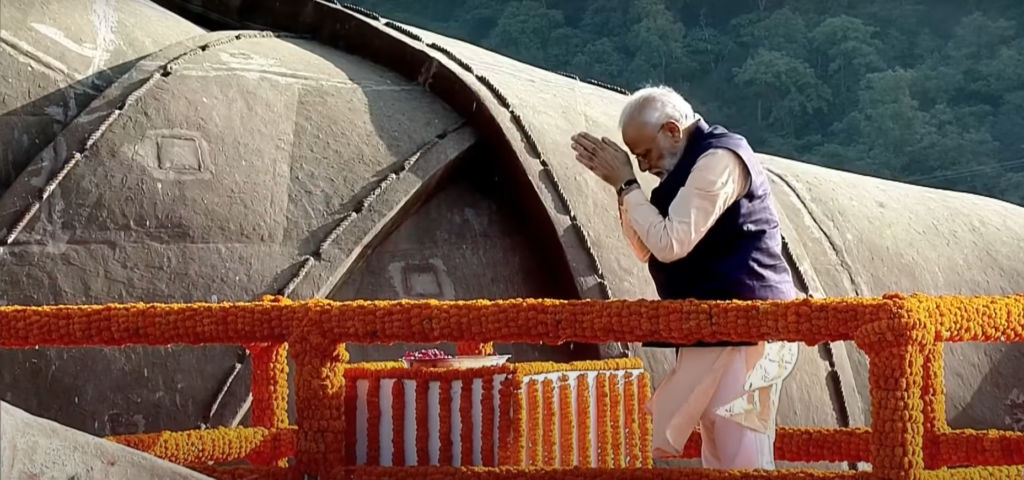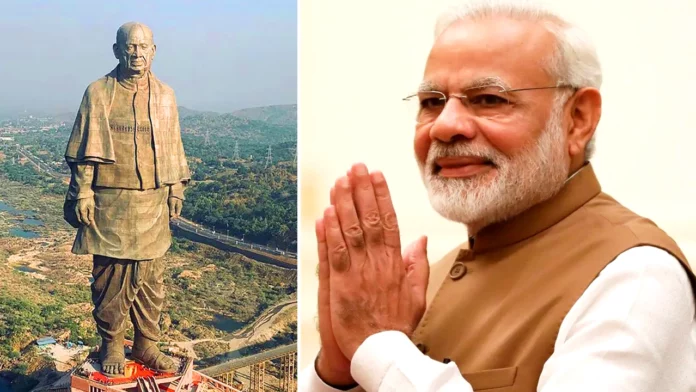Prime Minister Narendra Modi visited the State of Unity in Gujarat’s Kevadia to commemorate the birth anniversary of Sardar Vallabhbhai Patel, the country’s first Home Minister. During his visit, PM Modi performed ‘jalabhishek’ and laid floral tributes at the statue of Sardar Patel on Rashtriya Ekta Diwas (National Unity Day). Following that, the Prime Minister led the public in taking the National Unity Day pledge at Ekta Nagar.
In a tweet, PM Modi paid tribute to Sardar Vallabhbhai Patel, recognizing his unwavering spirit and visionary leadership that played a pivotal role in shaping the nation’s destiny. He highlighted Patel’s commitment to national integration and expressed gratitude for his service.
#WATCH | PM Modi pays tributes to Sardar Vallabhbhai Patel on his birth anniversary pic.twitter.com/K2rXhxUcfh
— ANI (@ANI) October 31, 2023
Born in Gujarat in 1875, Sardar Vallabhbhai Patel was a lawyer and a prominent Congress leader who worked closely with Mahatma Gandhi during the Independence movement. As the first Home Minister of Independent India, he is credited with uniting over 550 princely states into a unified nation through a combination of persuasive diplomacy and resolute action.
#WATCH | Delhi: President Droupadi Murmu, Union Home Minister Amit Shah, Vice President Jagdeep Dhankhar, Delhi LG VK Saxena and Union Minister Meenakashi Lekhi pay floral tributes at the statue of Sardar Vallabhbhai Patel in Patel Chowk on his birth anniversary. pic.twitter.com/UFPG71fx0J
— ANI (@ANI) October 31, 2023
In Delhi, President Droupadi Murmu, Vice President Jagdeep Dhankhar, Union Home Minister Amit Shah, and other dignitaries also paid their respects to Sardar Vallabhbhai Patel at a special event held at Patel Chowk in the national capital. Amit Shah emphasized that Sardar Patel’s life was dedicated to the unity and prosperity of India, and his resolute efforts transformed India into a united nation from a fragmented collection of princely states.
The event at Patel Chowk was attended by Delhi Lieutenant Governor VK Saxena, Minister of State for External Affairs Meenakshi Lekhi, and other dignitaries.
The Contribution of Sardar Vallabhbhai Patel to India’s Fight for Freedom


Vallabhbhai Patel, widely known as Sardar Patel, was an Indian barrister and a prominent leader of the Indian National Congress. The title “Sardar” signifies “chief” and is popular in Hindi, Urdu, and Persian languages. His role as India’s Home Minister during the 1947 Indo-Pak war was pivotal, as he spearheaded the unification and integration of the British provinces assigned to India into the newly independent nation. Patel’s leadership played a crucial role in forging a united and cohesive India.
In the early stages of the Indian freedom movement, Patel wasn’t initially inclined toward active politics or Mahatma Gandhi’s principles. However, a pivotal meeting with Mahatma Gandhi in Godhra in 1917 transformed Patel’s perspective and set the course for his life.
Patel became a member of the Indian National Congress and served as the secretary of the Gujarat Sabha, which later became a stronghold of the Congress.
In response to Gandhi’s call, Patel made a significant sacrifice by leaving his well-established job to participate in the struggle for tax exemption during the Kheda crisis, which occurred during a period of plague and famine in 1918.
Later, Patel wholeheartedly embraced Gandhi’s Non-Cooperation Movement in 1920 and undertook extensive journeys throughout Western India to enlist over 3,00,000 members into the movement. Additionally, he successfully raised more than Rs 1.5 million in funds for the Congress party. Patel’s dedication and efforts played a crucial role in India’s fight for independence.

